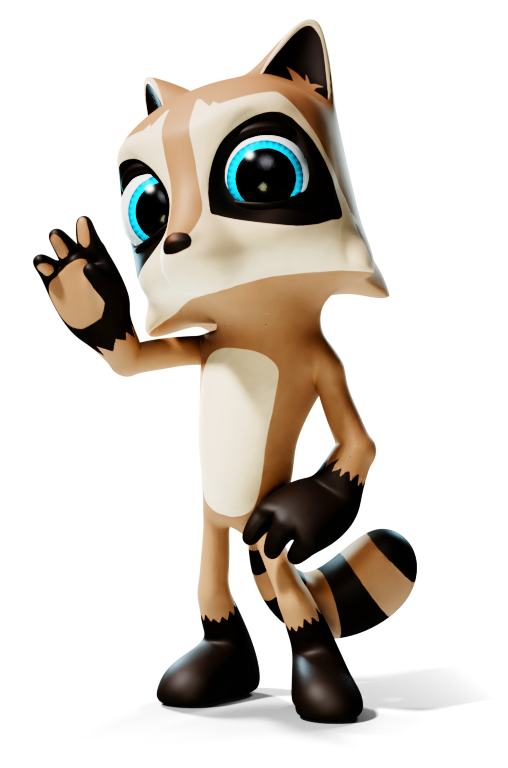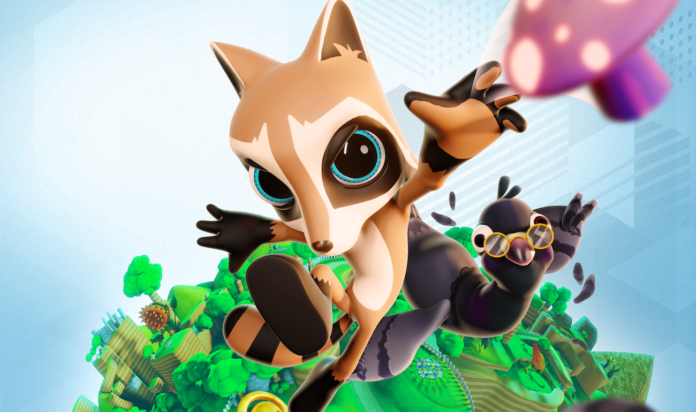He worked 5 years on his nostalgic 3D platformer Raccoo Venture, but according to Brazilian solo developer Diego Ras the journey was ‘extremely rewarding’. He started his career in advertising, but the world of video games always held his real interest. “Making games was something that seemed very far from reality”, he says. Yet, with help from the internet and some classes in college, he realized that he too could create games.
As a solo developer, Ras loves the complete control he has over his creations. He calls the freedom to make things exactly as he wants one of the great perks of working alone. “Of course, if it doesn’t work out you won’t be able to blame anyone but yourself!”, he says laughing. In the 5 years it took to complete Raccoo Ventures, Ras experienced some moments of burnout and demotivation. “It is important to understand that those moments are part of this journey and finding ways to get around these moments is also part of development.”
Why did you become a solo developer?
“I’ve always been very interested in video games, since when I was young I spent many hours playing on my SNES or later on my N64. But working with games and making it your profession was something that seemed very far from reality. However, things changed over time and I had more access to information with the arrival of the internet. It was through a class in college that I started and realized that it wasn’t so impossible to start developing your own games.”
“Many years passed and, after graduating, I started working in the advertising field. Between one job and another I always tried to include some type of content related to games. That was when in 2013 I joined as a partner in a studio that produced small advergames and games for exhibitions among other services. It was there that I really started to have contact with the world of development, through those short games that didn’t even have 3 minutes of gameplay. However, the studio still focused on the advertising area and my interests were increasingly focused on the games. That was when I decided to leave the company and face the challenge of creating a commercial game on my own.”
What are the biggest advantages of working solo?
“Like everything in life, there are its advantages and disadvantages. But one of the best aspects is the creative freedom you have when you have total control over a product. You can leave things exactly how you want and how you believe will work best. Of course, if it doesn’t work out you won’t be able to blame anyone! But on the other hand, when it works you get all the credit for creating something interesting. And I believe that creative freedom is the greatest quality that an indie game has, as it is free from labels and return demands from big investors.”
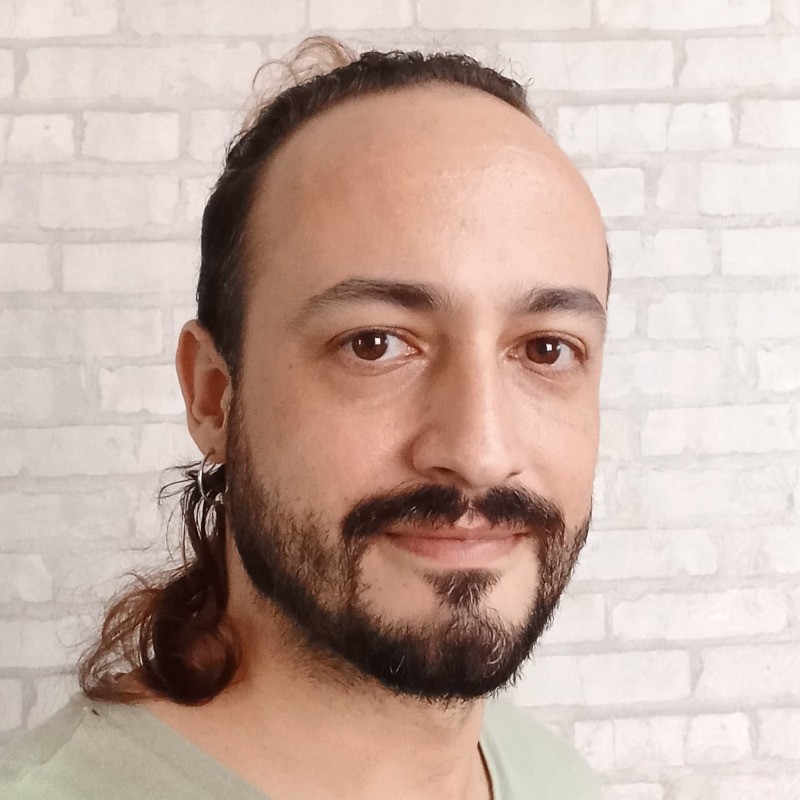
And the biggest pitfalls?
“On the other hand, there are also the negative aspects of working alone, which are almost like an inverted reflection of the good side. For example, the creative block that often gets stuck in our heads, or the lack of other points of view on a certain feature of the project, which could often be improved by including the expertise and experience of another professional. In other words, many positive points of working alone can become negative at a certain point in development and vice versa.”
What’s your creative process?
“As I come from the old school, I like to start everything on paper and pencil. I believe that this medium is more dynamic and offers faster responses when we are trying to format some ideas. I usually start by making notes and scribbling on some sheets of paper until the idea starts to mature. And I still prefer to refine it on paper before going to the computer. Only when I am satisfied with the result do I move on to the creation phase on the computer. There it will go through another polishing stage until reaching an acceptable product. That’s how I worked on the level design and puzzles in Raccoo Venture, for example. Although the levels often underwent changes after testing in the 3D environment, when you start to feel the dynamics of the level and the puzzles. In this greyboxing phase I usually put a few people to play and observe if the results were positive and if the flow of the level worked as planned, and only then finish with the art.”
How do you stay motivated through (years of) development?
“Solo development is a journey of many challenges, whether technical, financial or otherwise. Especially in a project like Raccoo Venture, which took 5 years of development. Inevitably, you end up experiencing moments of burnout and demotivation, which are extremely common when you work for so long on the same project. However, it is also important to understand that those moments are part of this journey and finding ways to get around these moments is also part of development. But I can say, without any doubt, that this journey is extremely rewarding and provides a lot of learning, contact with incredible people and achievements.”
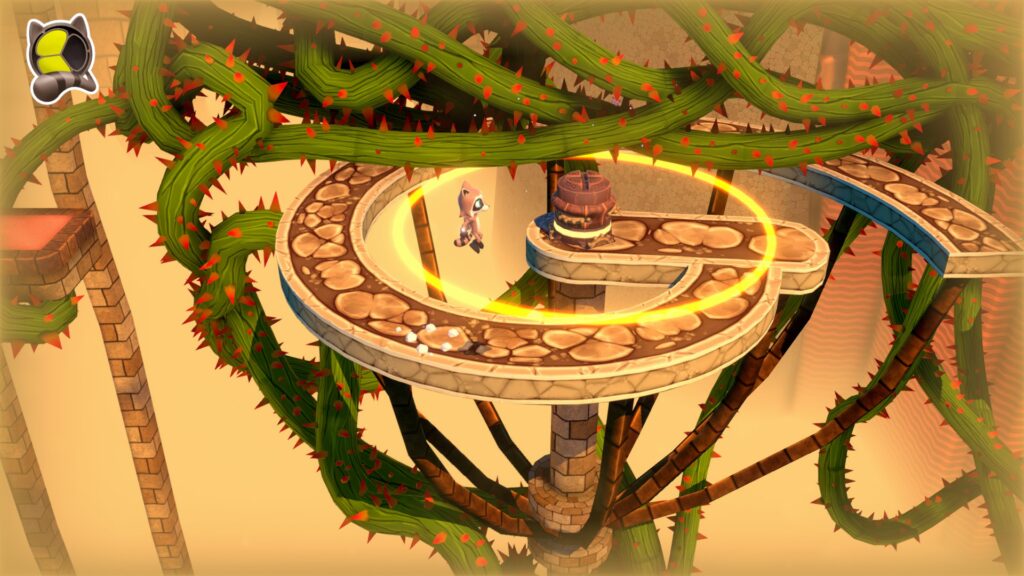
“On several occasions you need to use a lot of creativity to solve technical problems or overcome personal challenges, so it ends up becoming an opportunity to get to know yourself better and reinvent yourself in order to overcome the difficulties that arise along the way. The way I found to make this happen and what worked for me (after all, it may not work for other people) was to approach game development with the same commitment as a regular job. So I tried to keep my schedule, work every day and meet the goals I set. Understanding the project in this way helps to maintain the rhythm and avoid excuses to ‘skip’ a day of production, in the same way that there are days when you wake up and don’t feel like going to work but need to go anyway.”
Will you ever work in a team or is it only solo for you?
“In the past I worked with a team developing a mobile game, where I had my first experience with developing a commercial game. It was very different from the short games for exhibitions that I had previously developed. But it was a short experience of approximately 1 and a half years. But later I decided to face the development of Raccoo Venture alone as a kind of personal achievement.”
How did you get the idea for Raccoo Venture?
“A few years ago I was missing these simpler games like we had in the Nintendo 64 and Playstation 1 era. And at that time I was already harboring the idea of starting to develop a game alone. As I’ve always been a big fan of 3D platforms, this would be a more comfortable choice for me to work on, as this way I would have a little more knowledge and references. When I started the project I had in mind that the main character should be a cute mascot. That’s when I started researching some more “exotic” animals and came across the raccoon. I thought it would be interesting to have him as the protagonist, because besides them having these very characteristic marks on their faces that resemble a mask, I found few games and movies that featured raccoons as the main heroes.”
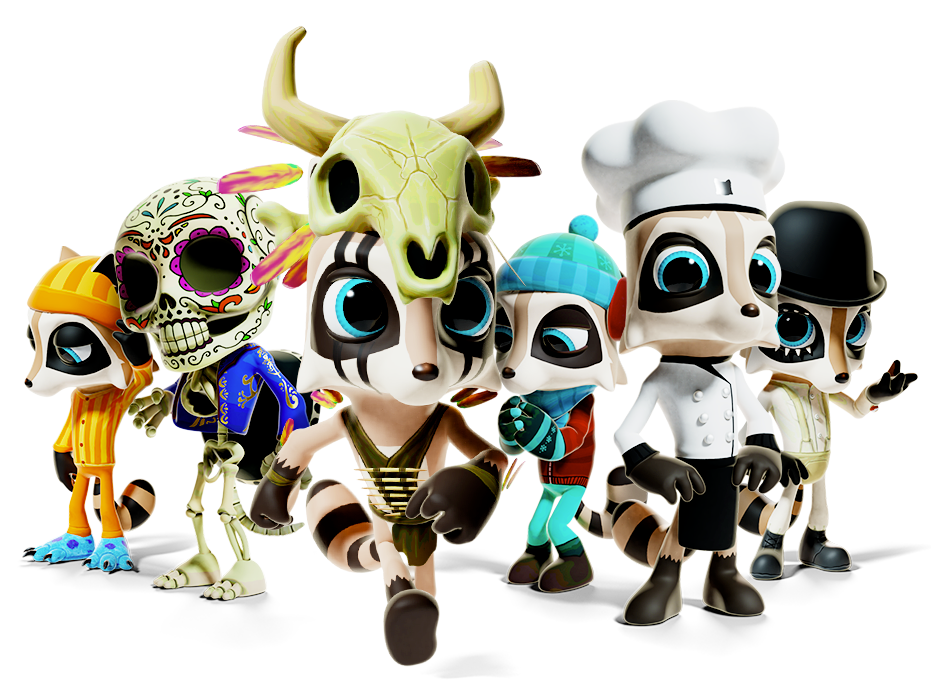
“The design of his fur was interesting to create a striking character and the more agitated personality that we can find in several videos on the internet matched well with the energy and speed that I would like the game to convey. My goal with this game was to bring that playful and more simplistic atmosphere that we had at the beginning of the era of 3D games, but with a small touch of modernity. For this, the more cartoonish art style of the world and characters seemed like a good option to achieve this result.”
What’s the biggest lesson learned from this project?
“The development of ‘Raccoo Venture’ was an enriching experience filled with valuable lessons. Some important takeaways include: Having a solid plan from the outset, including market research, clear goal definition, and most importantly, realistic timelines. Community feedback is gold. Involving the community and regularly gathering feedback during development is crucial. External opinions can reveal valuable perspectives and identify areas for improvement, contributing to a more polished product. Be prepared to adjust the course as needed. Flexibility is vital in game development, as inevitable changes can lead to unexpected improvements. However, don’t let yourself drift away and remember to stay focused on the project’s fundamental goal.”
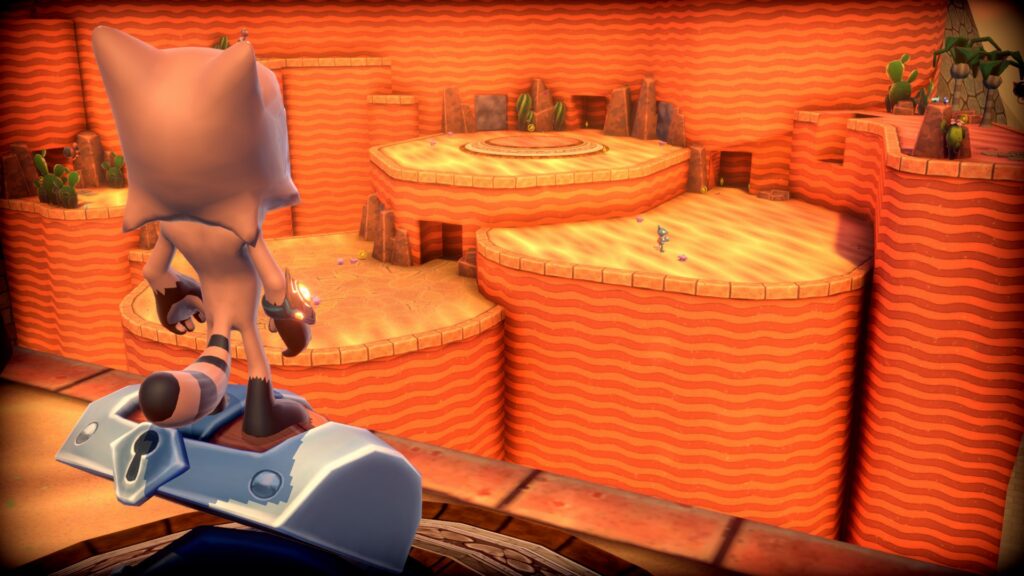
“Beware of mutant scope. Throughout development, you may often be tempted to include incredible features and mechanics that weren’t originally planned, which can make the project’s completion elusive. It’s preferable to cut elements rather than add new ones. Promote your game from the early stages of development. Building an online presence, engaging the community, and creating expectations can generate interest even before the launch, which is crucial when you don’t have extra miles to invest in marketing. Finally, maintain a healthy balance between work and rest. Understand that moments of slowdown and fatigue are natural during the process, and that’s okay! Recognizing and accepting these aspects is crucial for long-term creativity and productivity.”
The toll on your mental health can be quite high for a solo developer. How do you deal with that?
“Due to the time spent working on the same project and the overload of roles, it is not uncommon for you to experience moments of fatigue and even burnouts. Therefore, it is important to have physical activity, rest and sleep during the process. I tried not to exceed my schedule too much and always practice a hobby apart from games, like playing an instrument, taking singing lessons or watching that TV series that you like so much. These are small details that help to change the focus a little and reinvigorate creativity.”
